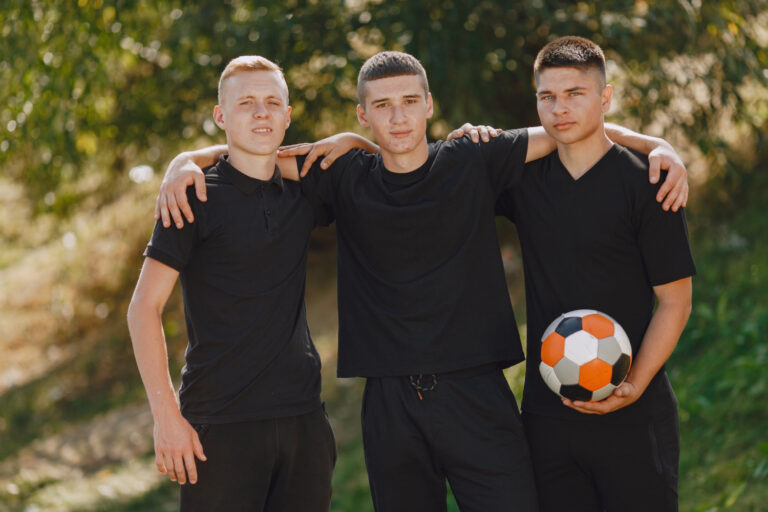Why Derby Day is a Sacred Ritual
There are matchdays, and then there are derby days. The air feels heavier, the tension thicker, the atmosphere utterly electric. On derby day, football ceases to be just a game and transforms into something deeper, a tribal contest, a cultural performance, a ritual embedded in the emotional DNA of clubs and fans alike. It’s not just about points or standings. It’s about pride, memory, territory, and identity. Derby day is sacred because it carries the emotional freight of decades, even centuries, of rivalry.
The Unspoken Code of a Derby
Every fan who’s lived through a derby knows it’s different. You prepare differently. You walk into the stadium or sit before your TV with a different kind of anxiety. The week leading up to the game is filled with jabs from coworkers, side-eyes from neighbors, and social media skirmishes. It’s part of the unspoken code: you defend your side at all costs.
There’s something intimate about it. Derbies are, by nature, local. These are matches between clubs that share geography, sometimes the same street, sometimes divided by a single river or railway line. That proximity makes things personal. You know their fans. You’ve argued with them. You’ve grown up next to them. Victory is bragging rights in your neighborhood. Defeat feels like silence imposed on your tongue.
Where Passion Meets History
Most derbies are born from more than simple location. They often originate from class differences, political leanings, religious divides, or historical grievances. The Glasgow derby between Celtic and Rangers carries the weight of Catholic-Protestant identity. In Buenos Aires, the Superclásico between Boca Juniors and River Plate draws on the working-class roots of Boca and the more affluent beginnings of River. These aren’t just football matches; they are reflections of society, class tensions, and cultural distinctions.
What makes derby day sacred is how this history lives in the now. The chants still echo those old wounds. The banners still carry messages that recall past glory or humiliation. Every tackle is a statement, every goal a declaration. When fans sing their hearts out, it’s not just about the current squad, it’s about honoring those who came before, the victories earned and the heartbreaks suffered.
The Rituals Before Kickoff
For fans, derby day starts well before kickoff. Whether it’s the walk to the stadium with a procession of fellow supporters or waking up early to pull on the jersey that has been worn for years, the day is loaded with rituals. You might sit in the same chair. Eat the same pre-match meal. Recite the same words to yourself. These behaviors may seem trivial, but they’re deeply personal, a way to feel connected to something bigger, older, and grander.
In some cities, the tension is so palpable that public transportation becomes segregated by colors. Police presence doubles. City centers go quiet. Everyone is either heading to the ground or avoiding it entirely. It’s more than a game, it’s a civic event. Derby day brings the city to a standstill.
What the Players Feel
While fans have decades of loyalty behind them, players, especially new signings, have to understand what’s at stake fast. Managers and captains usually do the storytelling. They show clips of past clashes, explain what this game means to supporters, and talk about what it feels like to lose one.
Some players rise to the occasion. They relish the aggression, the noise, the pressure. They understand that a great derby performance can make them legends. Others buckle under the weight. You can almost see it in their body language, the hesitation, the nerves. In many ways, derby day separates the good from the great, the committed from the confused.
For academy graduates and long-serving pros, this is often the game that defines their careers. Even if they win nothing else, winning the derby brings immortality in the eyes of the fans. Players know that. They feel that energy and often mirror it in their performances.
The Emotions Run Deep
I’ve seen grown men cry after a derby win. I’ve also seen supporters sit stunned in complete silence after a crushing loss. It’s not melodrama; it’s the intensity of emotional investment. Some fans spend their week counting down to this game. They lose sleep over it. Their relationships, moods, and even work lives can be impacted by the result.
It’s hard to explain to an outsider why it matters so much. But within the world of football, you don’t need to explain. Everyone gets it. Everyone knows that derby day is when you wear your heart on your sleeve and let the outcome dictate how you’ll feel for days, sometimes weeks.
Moments That Become Folklore
Derbies are often responsible for the most unforgettable moments in football history. A last-minute winner, a controversial red card, a goalkeeper’s heroics, or a teenager scoring on his debut, these moments are magnified tenfold on derby day. They’re talked about for years. They become memes, T-shirts, anecdotes passed from parent to child.
Fans can often recall the date and score of their club’s greatest derby win more easily than they can recall their own birthday. That’s how deep it goes. Derby day has the power to freeze time and create myth.
Broadcast to the World, Felt at Home
In the modern era, derbies are global events. They’re watched in bars from Lagos to Los Angeles, streamed on phones and TVs all over the world. But despite the international audience, they still feel hyper-local. That paradox is what makes them special.
No matter how commercial football becomes, no matter how many sponsorships or ad breaks occur, derby day still feels pure. It still feels like it belongs to the fans, the city, the community. When the teams walk out and the noise crescendos, it’s a moment that feels rooted in something primal.
The Fallout Matters
What happens after a derby is as important as what happens during it. A win can save a struggling manager’s job. A loss can turn fans against the board or incite protests. The media will dissect every decision. Players who make mistakes will be hounded; those who shine will be adored.
Social media turns into a battlefield. Memes, clips, celebrations, and sarcastic posts fly around for hours and days. The losing side retreats, bruised and silent. The winning side becomes unbearable in the best possible way. The rivalry doesn’t end at the final whistle, it just enters a new phase.
A Derby Without Fans Is No Derby
We learned during the pandemic that football without fans is incomplete, but a derby without fans is downright sterile. The songs, the jeers, the mosaics, the choreography, the flares, these are all essential elements. They’re not accessories; they are part of the performance.
Fans create the stakes. They hold the memory. They set the tone. Without them, a derby becomes just another game. But with them, it becomes a sacred ritual, an explosion of sound and color that captures the soul of football itself.
Why It Will Always Matter
In a football world increasingly dictated by algorithms, data, and sanitized experiences, the derby remains raw. It’s unpredictable, messy, passionate, and utterly absorbing. It resists neat narratives. One team may be top of the table, the other languishing in the bottom half, but on derby day, none of that matters. Form dissolves. Rankings vanish. What remains is desire.
This is why we care. This is why derby day is sacred. It gives us something to believe in, to feel viscerally, to connect with each other. In a world that often feels disconnected, tribal and hostile though it may be, derby day unites fans under a single emotional sky.
It’s not just a match, it’s memory. It’s myth. It’s love and hate, joy and despair, all in one afternoon.
Conclusion: A Sacred Fire That Burns Eternal
The sacredness of derby day lies in its resistance to triviality. It’s immune to the erosion of meaning that modern life so often brings. While much of the football calendar may fade into one match after another, the derby stands out. It’s bold. It’s fiery. It means everything and then some.
Long may it remain that way. Long may we sing louder, feel deeper, and walk out of the stadium knowing we just witnessed something real. Because if football is a religion for many, then derby day is its holiest ritual.







